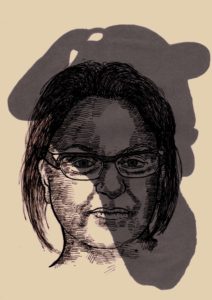Ella Shohat – Dislocated Identities: Reflections Of An Arab-Jew
When issues of racial and colonial discourse are discussed in the United States, people of Middle Eastern and North African origin are often excluded. This piece is written with the intent of opening up the multicultural debate, going beyond the U.S. census’s simplistic categorization of Middle Eastern peoples as “whites.” Provoked by the Gulf War, my personal narrative questions the Eurocentric opposition of Arab and Jew, particularly the denial of Arab-Jewish (Sephardic) voices both in the Middle Eastern and American contexts.
I am an Arab-Jew. Or, more specifically, an Iraqi Israeli woman living, writing and teaching in the United States. Most members of my family were both and raised in Baghdad, and now live in Iraq, Israel, the United States, England, and Holland. When my grandmother first encountered Israeli society in the ‘50s, she was convinced that the people who looked and ate so differently—the European-Jews—were actually European-Christians. Jewishness for her generation was inextricably associated with Middle Easterness. My grandmother, who still lives in Israel and still communicates largely in Arabic, had to be taught to speak of “us” as Jews and “them” as Arabs. For Middle Easterners, the operating distinction has always been “Muslim,” “Jew” and “Christian,” not Arab versus Jew. The assumption was that “Arabness” referred to a common shared culture and language, albeit with religious differences.
The complete essay:
https://www.academia.edu/Dislocated_Identities_Reflections_of_an_Arab_Jew
Originally published in Movement Research 5 (Fall 1991/Winter 1992), p. 8
